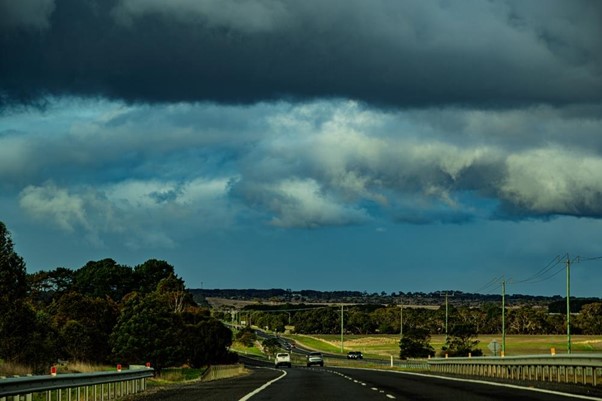Colac residents are no strangers to the delights of winter. With frequent chilly mornings, frost covered lawns, and higher than average rainfall across the region when compared to other areas across greater Victoria, many Colac locals are already well-prepared for cold weather conditions.
But for most homeowners, the winter season can still be a harsh reminder of the importance of routine maintenance, as vigilance and preparation can save you from being left out in the cold. However even with all the preparation in the world and years of cold season experience, we’re all still at risk of overlooking some smaller details that could turn into larger problems for your land and property.
If you’re looking to assess your winter readiness, we’ve compiled a brief list of the main problem areas across Colac properties for faults, malfunction, and neglect so you can be sure you’re winter ready.
Power Outages & Energy Costs
Wet weather power outages are a consistent winter concern for Colac residents, which is why electrical maintenance is a must in the lead-up to winter. Late autumn and early winter is an ideal time to prepare your home’s electrical system for wet weather conditions. This includes upgrading fuse boxes and switchboards in anticipation of electrical storm risks and performing any necessary system servicing and house rewiring. Colac residents are also advised to keep an emergency residential electrician on speed dial throughout winter and spring to ensure your household is prepared for any electrical emergencies over storm season.
Similarly, with the rising cost of power bills becoming a concern for most Victorian households, a winter that places a higher demand on your home’s electricity consumption is a daunting prospect. Using a smart meter can help you to track your energy consumption and understand which areas of your home are using the most power. This may in turn help identify any short circuits or electricity leaks.
In addition to increased fees, the infrastructure connecting Colac citizens to energy sources is becoming increasingly susceptible to dramatic weather changes. To prepare for a potential winter blackout, it’s important to consider an alternate method of heating in addition to your preparation of batteries and torches. A gas canister powered camping stove is a handy tool for providing some heat and allowing for simple cooking functions.
Rising Mould Risks
Increased moisture levels are almost a guarantee in the winter season as indoor heating paired with poor ventilation can lead to mould growth. Areas that amass a buildup of condensation are at the highest risk of developing mould but any room can be a spawn point for mould if not properly maintained.
Some signs of early signs of mould growth such as a musty smell or black spots, are not necessarily cause for great concern. These can be addressed with moisture control measures like improving ventilation or using a dehumidifier.
However, if the problem consists with further growth appearing, persistent smell, or peeling paint, it may be a sign of a larger problem that will require professional diagnosis and treatment. Mould growth can be a sign of a deeper structural issue such as wood rot, caused by overexposure to moisture without proper ventilation or treatment. If this occurs in your home, the damage is too far done and the affected areas will need to be replaced.
Gutter and Roof Vulnerabilities
A large part of keeping your interior moisture levels under control comes from weatherproofing the exterior of your home. As the cool change brings about the wet season, there is an increased risk of flooding and water damage to homes without the proper protection.
Harsh and relentless rain can cause homeowners without functioning drainage systems immense grief and costly repairs. A buildup of leaf litter and other natural debris can clog gutters and drains, leading to water overflow.
Additionally, old piping can be even more susceptible to malfunctions in the lower temperatures, leading to frozen pipes or even a burst. Cleaning your gutters of leaves and dirt regularly will help keep your rooftop drainage functioning all season. For those with older homes, we’d suggest considering updating your pipes to insulated piping, which is less prone to freezing, and can keep your water supply connected this winter.
Roofing tiles should also be professionally inspected to ensure the structural integrity can withstand the increased downpour. Cracked tiles or loose flashing are common rooftop issues that may be overlooked under usual weather conditions, but with the forecasted increase in rainfall these faults could be devastating.
Heating System Stress
There are many different ways Colac homeowners chose to keep their abodes warm. From wood fires to electric heaters, gas ducted heating to reverse cycle air con, your household should feel free to find heating methods that work best for your home and family.
Keep in mind, however, that all heating systems (be they ducted, split system, or even outdoor-rated infrared solutions) are susceptible to operational faults with increased use if proper maintenance is not adhered to. Regularly checking your heating systems throughout winter and keeping them well maintained will maximize efficiency and help you avoid being left out in the cold.
A word of caution: wood stove fires are especially hazardous and should be regularly emptied of ash and soot during cold weather periods. Failure to do so may negatively affect the interior air quality in your home or potentially even result in housefires.
Prepare your Colac Property for all Cold Weather Risks
With Victoria’s ever changing cold weather conditions, Colac residents can greatly benefit from maintaining a proactive approach to their winter preparedness this year. Keeping your heating systems in regular maintenance, monitoring your energy consumption, and combating increased moisture levels are simple ways to keep your home safe, warm, and healthy this winter.
Similarly, residents are advised not to delay in contacting emergency services if they feel they’re in need. Cold weather hazards like mould and electrical faults can only grow more dangerous if left unchecked. By responding promptly to emergencies as they arise, you can better protect your property and household.









